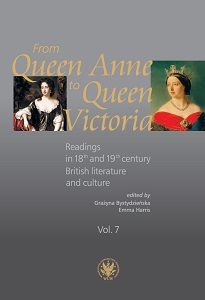Reviving the Anglican Confession in the Victorian Novel
Reviving the Anglican Confession in the Victorian Novel
Author(s): Monika Mazurek
Subject(s): Theoretical Linguistics, Applied Linguistics, Studies of Literature, Philology, History of Art, British Literature
Published by: Wydawnictwa Uniwersytetu Warszawskiego
Keywords: Victorian literature; Tractarianism; Ritualism; Oxford Movement; confession; doctrine of reserve
Summary/Abstract: The Tractarian movement and the subsequent Ritualist movement sought to bring the Church of England back to what they believed was its Catholic roots. The means through which they tried to accomplish that were, among others, the revival of the Catholic forms of liturgy. These activities attracted much attention, often unwelcome, from Evangelical circles, who feared all these activities were the indication of a Popish “fifth column” working in the midst of the Anglican Church. One of the most controversial revivals was that of re-introducing auricular confession. Confession was in the eyes of many Anglicans tainted by its associations with the Roman Catholic Church, and especially the confessions of women, in an intimate encounter with a man who was not their father or husband, were particularly troubling. Probably the most famous confessional scene in Victorian literature is the one described by Charlotte Brontë in "Villette" (1853). This article discusses this and other confessional scenes, but focusing on confession in the Anglican context, presenting both the novelists attacking it, such as Mrs Henry Wood or Emma Worboise, but also supporting it, such as Charlotte Mary Yonge or Christina Rossetti. It is notable that while confession was very important for Tractarian religious practice, it is mentioned relatively rarely in the works of the writers connected with this movement, or described in a rather coded way. A possible explanation could be the Tractarian doctrine of reserve, which encouraged the followers of the movement to exercise caution when speaking about subjects they considered holy, especially with an uninitiated audience, such as the potentially random readers of their novels.
- Page Range: 139-147
- Page Count: 9
- Publication Year: 2021
- Language: English
- Content File-PDF

